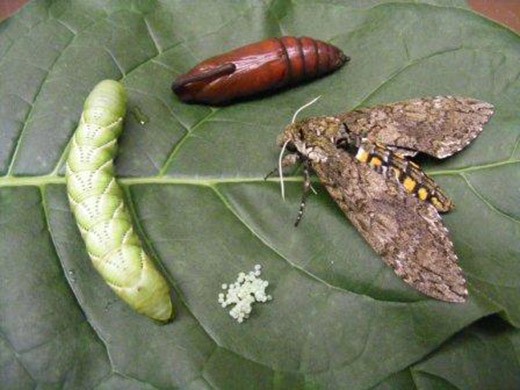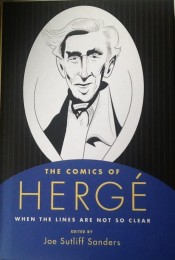In the College of Arts and Sciences, there are always big things happening. Take a look at some of our highlights from January 2017:
Journalism and Mass Communications
Sociology, Anthropology and Social Work
American Ethnic Studies
Yolanda Broyles-González, department head of American Ethnic Studies, has published the first academic treatment of singer Jenni Rivera as part of a cultural studies anthology titled “De Aztlan al Rio de la Plata,” edited by Sergio M. Martinez.
The anthology’s title marks its transnational focus: “Aztlan” is a Nahuatl Aztec designation for North America, while “Rio de la Plata” designates South America. Mexican American singer Jenni Rivera enjoyed a singular hemispheric popularity across national borders. When Rivera died in a plane crash on Dec. 9, 2012, Mexican-Americans lost their greatest living song idol, while the world in general lost one of the most eloquent and engaged advocates for women of color.
In her article, Broyles-González traces the emergence of Rivera from a Long Beach, California barrio to a stardom, which gave voice to the most disenfranchised sectors of society. Her voice performed a powerful history from the fringe, which modeled empowerment for women, most especially immigrant Mexican women. Click here to read more.
Biology
Rollie J. Clem, professor of biology, has been awarded the Joan S. Hunt Distinguished Mentoring Award by the Kansas IDeA Network of Biomedical Research Excellence Program, or K-INBRE.
Candidates for the award must be faculty members at one of 10 participating Kansas and Oklahoma universities with demonstrated success in their field and must have mentored a substantial number of junior faculty, postdoctoral fellows, or graduate or undergraduate students. The award was established in 2012 to recognize someone with demonstrated commitment to fostering the intellectual, creative, scholarly and professional growth of mentees. The award’s namesake, Joan S. Hunt, is professor emeritus of anatomy and cell biology at the University of Kansas Medical Center and the original principal investigator of K-INBRE. Read the full story here.
Communication Studies
Two Communication Studies students were awarded Arts and Sciences Research Travel Scholarships to attend the Central States Communication Association (CSCA) Conference. Brett Sitts, an undergraduate, and Lindsey Milburn, a graduate student, will both travel to Minneapolis later this spring for the conference.
Sitts and Paige Wiley, another undergraduate student, both had papers accepted to the CSCA Undergraduate Honors Research Conference (UHRC) and will present their papers as part of a competitive panel.
Economics
Dan Kuester gave a presentation on creating personal connections in the  classroom as part of the GTA Professional Development Series sponsored by the Faculty Exchange for Teaching Excellence (FETE). This series features faculty lectures for graduate students who are interested in receiving certification in teaching techniques.
classroom as part of the GTA Professional Development Series sponsored by the Faculty Exchange for Teaching Excellence (FETE). This series features faculty lectures for graduate students who are interested in receiving certification in teaching techniques.
“This is the second consecutive year I was asked to give one of the talks and I was happy to do so,” Kuester said. “I spoke about ways to make the classroom environment less intimidating for students.”
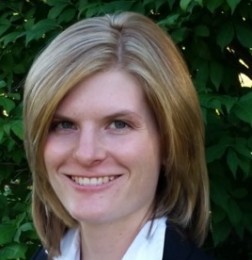 Amanda Gaulke presented “Stopping Out of College: The Role of Credit Constraints” at the Western Economic Association International Conference in Santiago, Chile as part of a Contemporary Economic Policy: Public Policy and Inequality Series Session arranged by Indiana University.
Amanda Gaulke presented “Stopping Out of College: The Role of Credit Constraints” at the Western Economic Association International Conference in Santiago, Chile as part of a Contemporary Economic Policy: Public Policy and Inequality Series Session arranged by Indiana University.
Geography
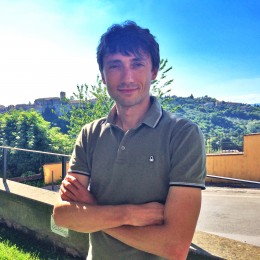 Assistant Professor Francesco Orsi published a correspondence piece titled “Environment: Progressive Taxes for Sustainability” in the international journal Nature. The correspondence suggests levying progressive taxes on goods that are particularly detrimental to the environment as a method of achieving a more sustainable society. Orsi is a recognized authority on the use and preservation of green space and sustainable transportation.
Assistant Professor Francesco Orsi published a correspondence piece titled “Environment: Progressive Taxes for Sustainability” in the international journal Nature. The correspondence suggests levying progressive taxes on goods that are particularly detrimental to the environment as a method of achieving a more sustainable society. Orsi is a recognized authority on the use and preservation of green space and sustainable transportation.
Geology
Mattheow Totten and Abdelmoneam Raef and their student Keithan Martin published an article in the Journal of Petroleum Science and Engineering on studying the petroleum system of the subsurface Hugoton embayment basin of western Kansas.
The study focuses on improving the understanding of the orientation, geometry, and spatial distribution of ooid shoal complexes in Kearny County, Kansas. Integration of multiple datasets and advanced Artificial Neural Networks analysis resulted in the development of a well-calibrated predictive tool for classifying specific rock characteristics (lithological facies) based on geophysical well-logs.
Journalism and Mass Communications
Safiya Woodard, senior in mass communications at K-State, won the grand prize in the 2016 Biotech University reporting contest, a $2,500 academic scholarship. Woodard’s winning entry was a video documentary, “The Evolution of Biotechnology in Agriculture.” Click here to read more.
Modern Languages
Laura Kanost, associate professor of Spanish, led a group of eight Spanish students on a two-week study abroad program in Costa Rica blending cultural and linguistic immersion, leadership, and multidisciplinary research. The students, who represent four different colleges at K-State, lived with host families in a rural community, engaged in a service-learning project, and participated in a variety of excursions and mini-classes. Pictured, from left to right: Natalie Wolf, sophomore, Arts and Sciences Open Option; Jacklyn Dawson, freshman, Business Administration; Katlyn Krause, junior, Geography; Anne Recker, senior, Animal 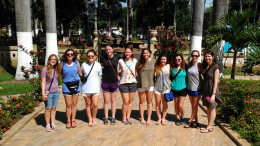 Sciences and Industry; Christine Laflin, sophomore, Architectural Engineering; Shea Roy, senior, Kinesiology; Cassidy Frost, senior, Biochemistry; Kaylee Aherns, freshman, Arts and Sciences Open Option; Amy Hein, senior, Spanish and Marketing; Laura Kanost, associate professor of Spanish.
Sciences and Industry; Christine Laflin, sophomore, Architectural Engineering; Shea Roy, senior, Kinesiology; Cassidy Frost, senior, Biochemistry; Kaylee Aherns, freshman, Arts and Sciences Open Option; Amy Hein, senior, Spanish and Marketing; Laura Kanost, associate professor of Spanish.
Continue reading “College Highlights, January 2017”
